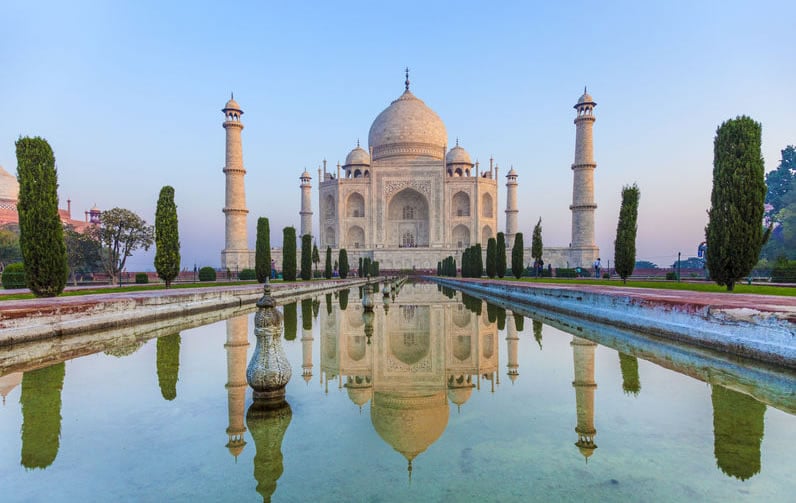This post is by Meghla Bhardwaj, an expert in sourcing products from India, and founder of India Sourcing Network.
While most private label ecommerce sellers buy products from China, an increasing number of sellers are exploring alternative markets such as India to diversify their business and minimize risks.
The import tariffs imposed by the US on China-made products has further accelerated the need to look beyond China.
This article describes why sellers should import from India, what kind of products are manufactured there, and how to find suppliers.
Why source products from India?
Here are some advantages ecommerce sellers have when buying products from India.
1. Unique, differentiated products
One of the main reasons to source from India is that the country specializes in producing unique and handcrafted products not found in other countries.
India suppliers focus on design and regularly develop and launch new products they have created in-house. Suppliers are very protective about their designs. At trade shows, exhibitors often won’t let buyers take photos of products in their booths.
There are also a wide range of indigenous handicraft styles that are unique to the country. For example, blue pottery from the state of Rajasthan, or cane and bamboo products made in the Eastern states of Assam, Meghalaya and Sikkim.
One advantage of selling handcrafted products is that they can command higher prices and therefore have higher profit potential.
2. No import tariffs
With the US tariffs on China-made products, many importers are looking to source products from alternative markets, and India is one of them.
India is not in a trade war with the US, and even though India was recently removed from the GSP (Generalized System of Preferences) list of developing countries that have preferential access to the US, this will not impact ecommerce sellers importing products from India.
This is because most of the items given preferential access were industrial and chemical products that ecommerce sellers would not be importing anyway.
3. Place small orders
Since a lot of Indian products are handmade, suppliers are usually willing to cater to small orders.
While minimum order quantities typically range from 200-500 units, suppliers will often cater to orders as low as 20-50 pieces (except for apparel and textiles). They may charge a slightly higher price for smaller orders.
This is a huge advantage for Amazon sellers, especially if you’re just starting out with a small budget, or if you’re an experienced seller and want to test a new product line.
4. IP protection
One of the main areas of contention in the trade war between the US and China is intellectual property protection. But when you source products from India, you won’t have to worry about your supplier copying your designs and selling them to other buyers.
In general, Indian suppliers have more respect for their buyers’ IP than typical Chinese suppliers. That doesn’t mean your IP will never be compromised, but it’s much less likely to happen in India than in China.
5. Smooth communication
English is the second official language in India, and most people you deal with at your supplier will speak English, although some are more fluent than others.
This is very advantageous when it comes to communicating with your supplier, especially when you are developing or modifying a product to sell as your own private label.
6. Domestic availability of various raw materials
A wide range of raw materials are readily available within India including cotton, silk, jute, marble, metal, wood, bamboo and others. In comparison, other countries such as Vietnam need to import such raw materials from China.
India is the world’s largest producer of cotton and accounts for 26 percent of global production.

7. Help uplift disadvantaged communities
There are non-profit organizations in India that employ disadvantaged communities (for example, single women who don’t have the skills to earn a living) to manufacture products for export.
When Amazon sellers source products from such organizations in India, they can command higher prices because of the story behind them. At the same time, they get to help and uplift these communities.
Key product categories sellers can source from India
India’s top exported categories overall are raw materials and industrial products such as oil, machinery, vehicles, chemicals, pharmaceuticals, iron, steel, machinery and the like.
Products that ecommerce sellers can import from India to sell online include handcrafted items made of various materials such as metal, ceramic, wood and textiles; apparel and fabrics; fashion accessories; leather products; and eco-friendly products.
Here is a detailed list of categories to consider sourcing:
Home décor and home products (textiles, metal, wood, ceramic, cotton, jute):
- Tableware, kitchenware
- Home decor
- Lawn and garden ornaments and accessories
- Lamps and lighting
- Furniture
Home furnishings and made-ups:
- Carpets, rugs and floorings
- Bed covers and linens, bedspreads
- Cushion and duvet covers
- Throws and curtains
- Table covers, placemats
Fashion:
- Jewelry and accessories
- Bags
- Scarves
- Precious gemstones
Textiles and apparel:
- Readymade garments (knitted and woven cotton products, silk)
- Textiles and fabrics
Leather:
- Shoes
- Bags and wallets
- Belts
- Equestrian products (leather and nylon)
Gifts and stationery:
- Christmas and festive décor
- Candles, incense sticks, potpourri and aromatics
- Decorative gifts (including corporate gifts)
- Stationery and paper including handmade paper
Eco-friendly products:
- Cane, bamboo fiber, natural and eco-friendly products
Tools:
- Gardening tools
- Hand tools
- Automobile tools
- Agricultural tools
Food:
- Rice
- Spices
- Lentils
- Tea and coffee
Sports products:
- Athletic equipment
- Baseball, golf, soccer, hockey, badminton equipment
- Tennis and table tennis
Finding Indian suppliers
Most Indian suppliers don’t maintain updated catalogs of their products and many don’t even have their own websites, because they are afraid their designs will be copied by other suppliers.
Here are a few ways to find suppliers:
1. Online supplier directories
You can find suppliers on sourcing websites such as Global Sources, Alibaba and IndiaMART.
Global Sources and Alibaba are more export-oriented while IndiaMART has many suppliers that cater to the domestic market as well.
When searching for Indian suppliers, use the “supplier location” filter on Global Sources and Alibaba.
2. Domestic trade shows
The most relevant exhibition for Amazon sellers to attend in India is the IHGF Delhi Fair that showcases gifts and handicrafts.
This fair has been held biannually since 1994 (spring and autumn editions) and is organized by the Export Promotion Council of Handicrafts. The Autumn 2019 edition of this fair will feature close to 3,500 exhibitors spread over 197,000 square meters.
There are several other smaller industry-specific trade shows held throughout the country.
3. Overseas trade shows
Indian suppliers can also be found at overseas shows held in Asia, Europe and the US.
Some of these shows are:
- Global Sources Fashion held in Hong Kong
- Canton Fair in Guangzhou
- SAITEX in Africa
- MAISON&OBJET in France
- Heimtextil and Ambiente in Germany
4. Sourcing agents
Many of the buying agents in India maintain their own databases of vetted suppliers, and can usually help find manufacturers for any product category.
Some agents might specialize in certain product categories depending on their location.
5. Export promotion councils
There are a number or export promotion councils in India for various product categories. They usually have a database of suppliers and are willing to help importers.
Search for these councils and contact them via email addresses on their websites. Responses may be slow, however.
Tips for effective sourcing from India
1. Build relationships
When sourcing products from India, take the time to develop a relationship with your supplier.
After you’ve placed a few orders (and made your payments on time) suppliers will come to trust you. Once a relationship has been established, you will be favored more. For example, you might get better prices, better payment terms with lower or no advance payments, longer credit times, or not be charged for samples.
Like China, it is common for suppliers in India to take their clients out for meals or arrange trips to visit tourist locations such as the Taj Mahal.
The Indian way of life is a bit slower and more relaxed compared to China. As family and professional lives are not rigidly separated, you may get questions about your family, and you may ask similar questions in return.
2. Hierarchy is important
Decisions are usually made at the highest level and hierarchy is important in Indian business culture. At smaller companies, decisions are typically made by the owner of the company or if it’s a larger company, by top managers, if they have been given the authority.
Day-to-day communications might become slower if your contact person needs to get authorization for various actions.
When meeting someone face to face, introductions occur according to rank. Talk to the most senior person first. Seniority is determined by the person’s position within the company or their age.
3. Ask specific questions
Ask specific questions that don’t require a direct yes or no. Like Chinese people, Indians don’t like saying “no” to a question. Instead, they say “maybe,” “we’ll see,” or even say “yes”.
This is because they want to keep all options open and make decisions based on specific circumstances or situations.
For example, when negotiating price, instead of asking directly if they can reduce the price by a specific amount, you could say that your product is gaining momentum and you’re planning to increase your order volumes. If you increase your order volumes by a certain amount, would they be willing to offer you more competitive prices? After they tell you how much they can reduce prices by, you can decide to negotiate further depending on your profitability.
4. Mix business with leisure
India is an exotic country with a rich culture and a lot to explore. It’s chaotic and loud, colorful, yet in a strange way peaceful as well.
There are plenty of historical places, temples, mountains and beaches. It is also home to one of the Seven Wonders of the World – the Taj Mahal.

If you do plan a sourcing trip to India, attend a trade show, or visit your suppliers and then take a few days to look around and experience the country and culture.
Is it time for you to source products from India?
Whether you are a newbie or a seasoned private label ecommerce seller, India offers a plethora of unique and innovative products to source. Selling such products is a great way to differentiate from the thousands of other Amazon third-party sellers purchasing products from China.
India is also a great source for eco-friendly and sustainable products, which are in high demand, especially among Millennials and Generation Z.
Buying from India can be intimidating as there is not a lot of information available online about sourcing best practices. However, as there is no language barrier, it can actually be easier than sourcing from China.
Check out my India Sourcing Facebook Group for tips on how to buy from India, and to meet with sourcing agents and service providers.
This post was by Meghla Bhardwaj, who has been working in the Asia sourcing industry for over 20 years. She has visited hundreds of factories in India and China and has a deep understanding of manufacturing and sourcing processes.
Meghla is passionate about helping global Amazon and e-commerce sellers source private label products from India. She has established India Sourcing Network, an all-in-one platform that provides importers everything they need to source from India, including vetted suppliers and service providers, workshops, mastermind, sourcing trips and more.

What about customs...
Hi Christie, customs and shipping can be easily managed if you have the right freight forwarder. I have a few service providers i can recommend if you'd like. Please reach out to me at [email protected] - Meghla